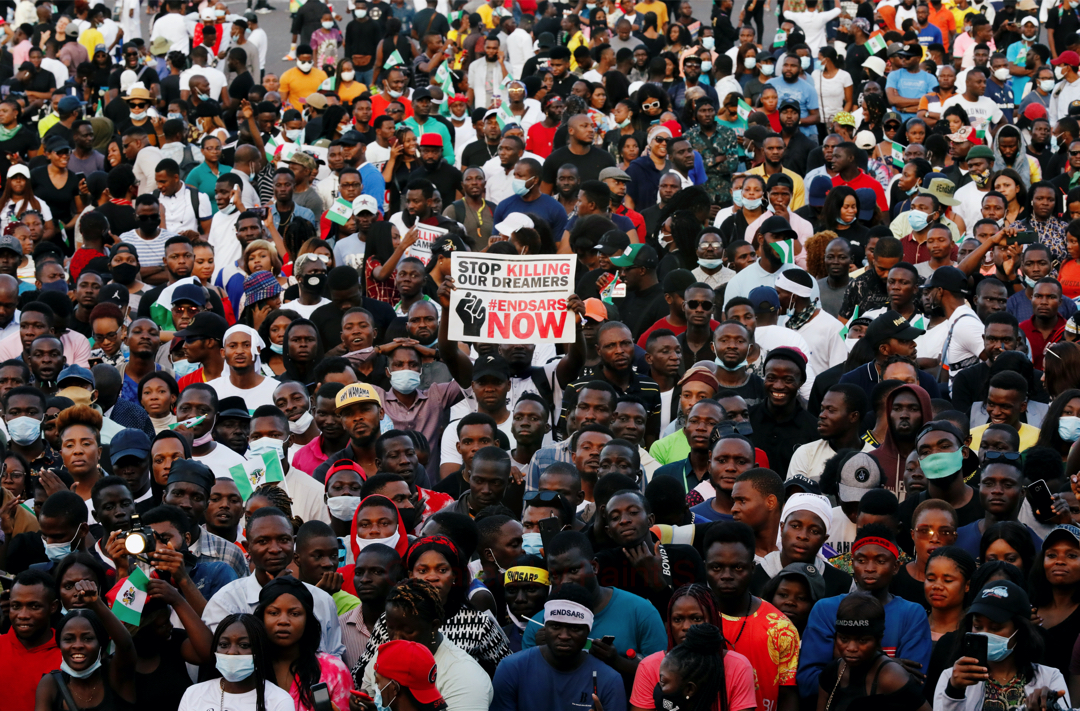Opinion
The Paradox of a Peaceful Protest
Published
2 years agoon

By Gharny Yeku
Can something peaceful also be tagged violent? That’s the paradox.
One major paradox of recent protests across the world is the tag “peaceful protest.” Despite the name, 98 percent of these “peaceful protests” have turned violent, causing significant damage to nationhood.
It’s clear there will always be reasons to protest government actions, which could be settled through negotiation. Unfortunately, government officials often seem out of touch with citizens’ realities until public unrest is threatened via “peaceful protests.” The role of protest, enshrined in the constitutions of many nations, remains vital.
The focus of every protest should be to gain attention and then negotiate from a position of strength. However, this is where peaceful protest becomes paradoxical. Robert Greene, in his book “48 Laws of Power,” captures this paradox: “The moment of victory is a moment of danger because you’re tempted to press your luck. Don’t let emotions push you past your goal. Stop, consolidate your gains, and prepare for new, different circumstances. Do not go past the mark you aimed for; in victory, learn when to stop.”
Every genuine lover of peace and progress who believes in holding the government accountable hopes protests yield positive results without escalating into riots or insurrection. However, the reality is that things aren’t always as they seem, especially in political contexts. Opportunists often hijack genuine protests, turning them into tools for personal gain.
A Yoruba adage says, “Ìbẹ̀rẹ̀ ogun là ńmọ̀; ẹni kan kì í mọ ìparí í rẹ̀,” meaning, “The beginning of war is known; no one knows how it will end.” The cost of so-called peaceful protests often exceeds the intended plan. Before committing to a “peaceful protest,” it’s crucial to consider its potentially paradoxical end, as seen in recent events in Kenya and elsewhere.
In Kenya, the human cost of protests since June 18, 2024, includes the loss of at least 39 lives. Many others have been injured, detained, or incapacitated. Economic disruption has followed, with businesses shutting down and transportation systems disrupted. Damages to infrastructure and properties are estimated at over $5 million, costs that public funds will have to cover.
The unintended costs of the peaceful protest paradox are evident. Should Nigeria witness another protest without considering these costs, especially when the government is responding to complaints?
In Ghana, after a peaceful protest, the economic crisis worsened, with consumer inflation reaching 37 percent by the end of 2022. The currency lost over 40 percent of its value, making it one of the worst-performing currencies in West Africa. The cost of living has increased, similar to Nigeria and other places.
Even in the USA, the Capitol riot on January 6, 2021, started as a peaceful protest but turned into insurrection within 24 hours. The protest resulted in five deaths, including a police officer and an Air Force veteran. Over 1,400 people were charged with federal crimes, and many have been sentenced to jail. The riot cost America an estimated $2.7 billion, including $483 million for National Guardsmen deployment and other damages to the Capitol building and grounds.
The EndSARS protest in Nigeria started with legitimate grievances against police brutality. When the government dissolved the SARS unit, the protests escalated, leading to significant economic losses, especially in Lagos. The economic cost of the EndSARS protest in Lagos was estimated at over $12 billion, exceeding the entire economy of Rwanda.
Remember the paradox of peaceful protest and consider Robert Greene’s advice: “The moment of victory is a moment of danger because you’re tempted to press your luck. Don’t let emotions push you past your goal. Stop, consolidate your gains, and prepare for new, different circumstances. Do not go past the mark you aimed for; in victory, learn when to stop.”
If there are no leaders to take responsibility for a protest, be assured that someone is using the protesters as tools for their political and economic gain. Don’t play into a game you know little about; everything will ultimately end at the negotiation table.
Share this:
- Click to share on X (Opens in new window) X
- Click to share on Facebook (Opens in new window) Facebook
- Click to share on WhatsApp (Opens in new window) WhatsApp
- Click to share on Pocket (Opens in new window) Pocket
- Click to share on Telegram (Opens in new window) Telegram
- Click to email a link to a friend (Opens in new window) Email
- Click to share on LinkedIn (Opens in new window) LinkedIn
